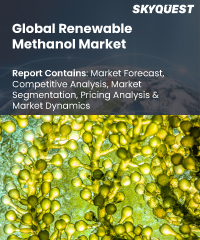
Report ID: SQMIG15C2062

Report ID:
SQMIG15C2062 |
Region:
Global |
Published Date: March, 2024
Pages:
184
|
Tables:
67 |
Figures:
65
In January 2024, Maritime Strategies International (MSI) predicts that there will be more popularity for renewable ammonia contrasted with renewable methanol in fueling the low-carbon economy. This shift mirrors the rising role of elective powers in decreasing fossil fuel byproducts.
In December 2023, Masdar and Hy24 consented to cooperate to investigate potential open doors in green hydrogen production. They will focus on transforming sustainable power into green hydrogen through a cycle called electrolysis. This partnership will likewise investigate delivering other green energy derivatives like ammonia, methanol, aviation fuel, and liquid hydrogen. They intend to focus on different regions all around the world, including Europe, the Americas, Asia Pacific, and the Middle East and North Africa (MENA).
In December 2023, Mitsubishi Gas Chemical Company, the City of Yokohama, and Maersk AS signed a Memorandum of Understanding (MOU). This partnership expects to advance the use of green methanol at the Port of Yokohama, determined to decrease fossil fuel byproducts from international marine transportation. The collaboration lines up with Japan's International Container Strategic Port and Harbour Policies and supports the Port of Yokohama's objective of accomplishing carbon neutrality.
Our industry expert will work with you to provide you with customized data in a short amount of time.
REQUEST FREE CUSTOMIZATIONWant to customize this report? This report can be personalized according to your needs. Our analysts and industry experts will work directly with you to understand your requirements and provide you with customized data in a short amount of time. We offer $1000 worth of FREE customization at the time of purchase.

Report ID: SQMIG15C2062